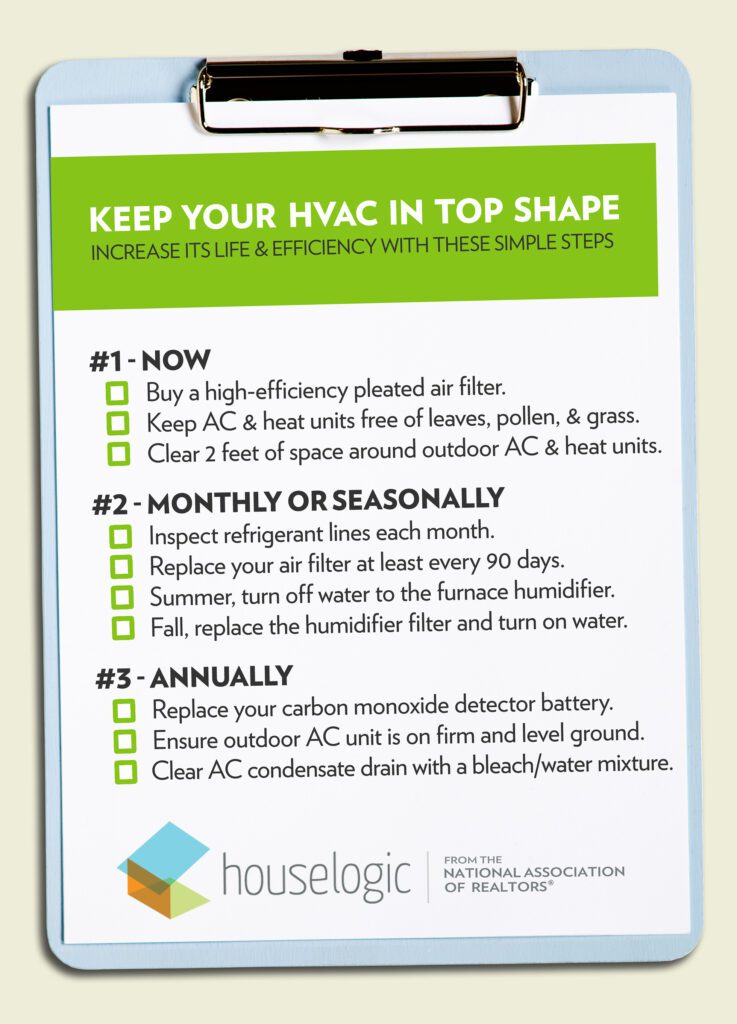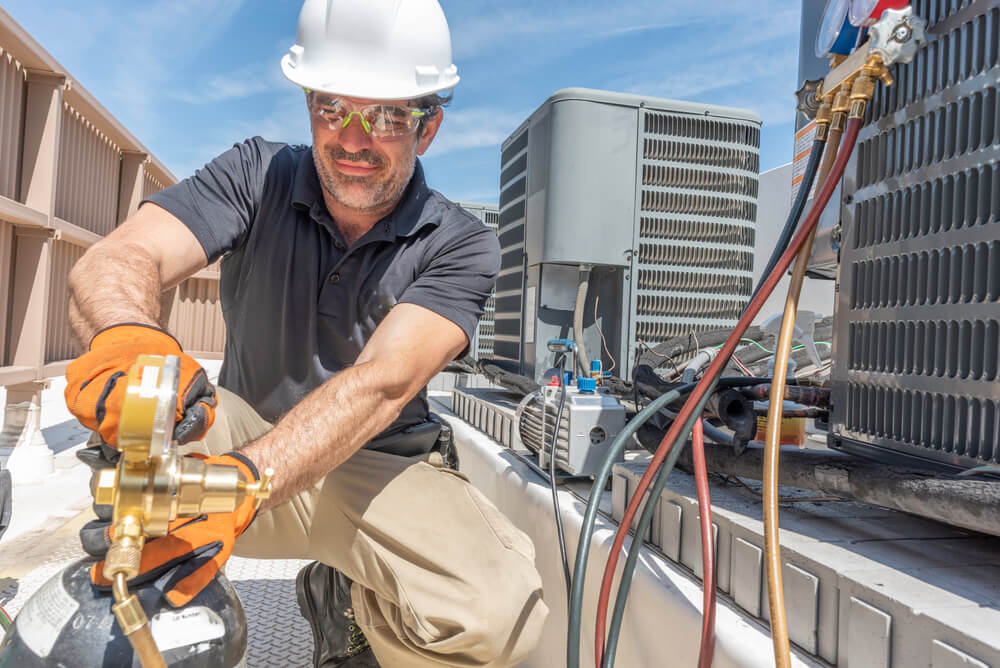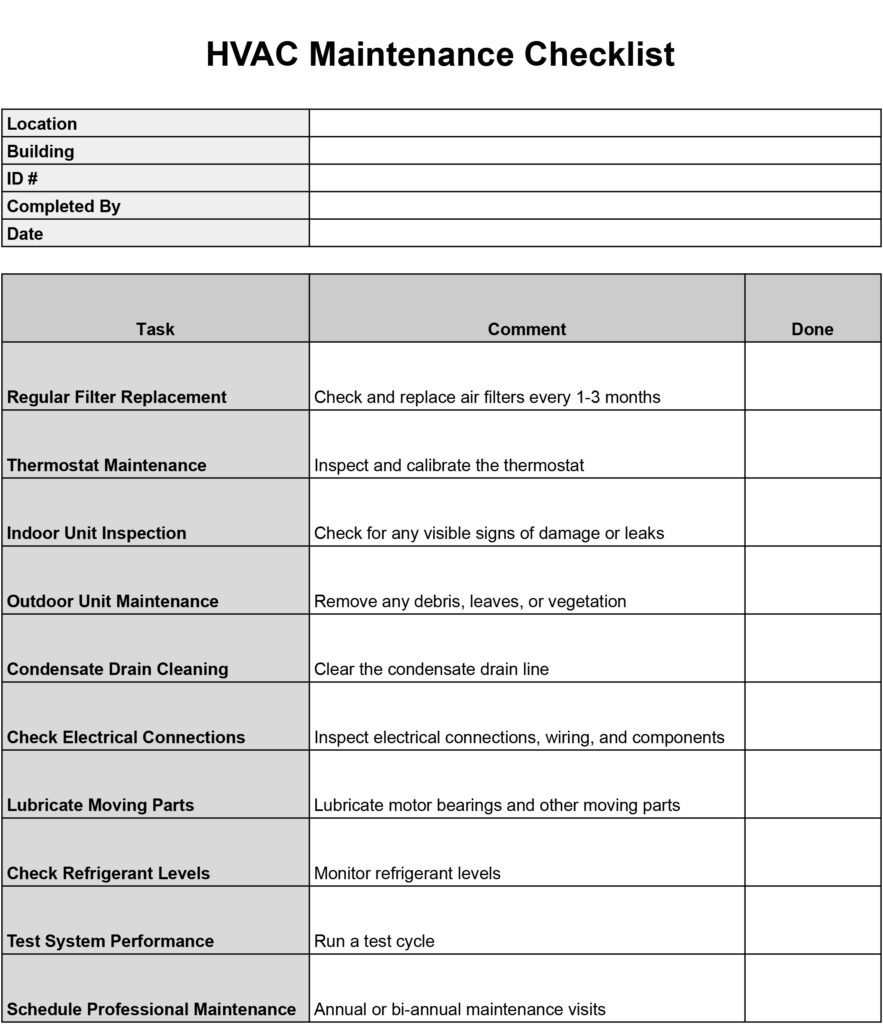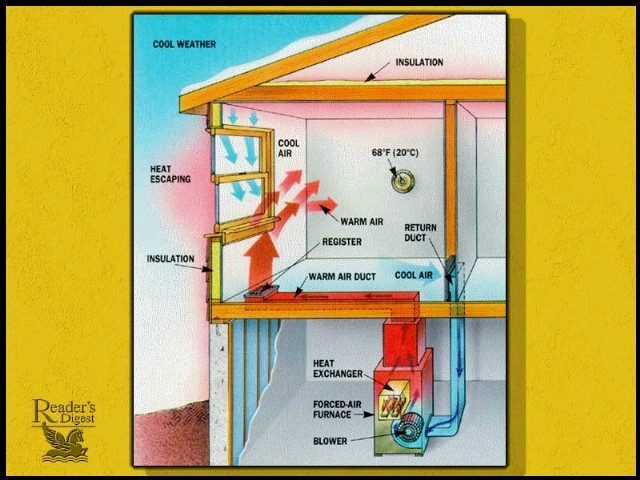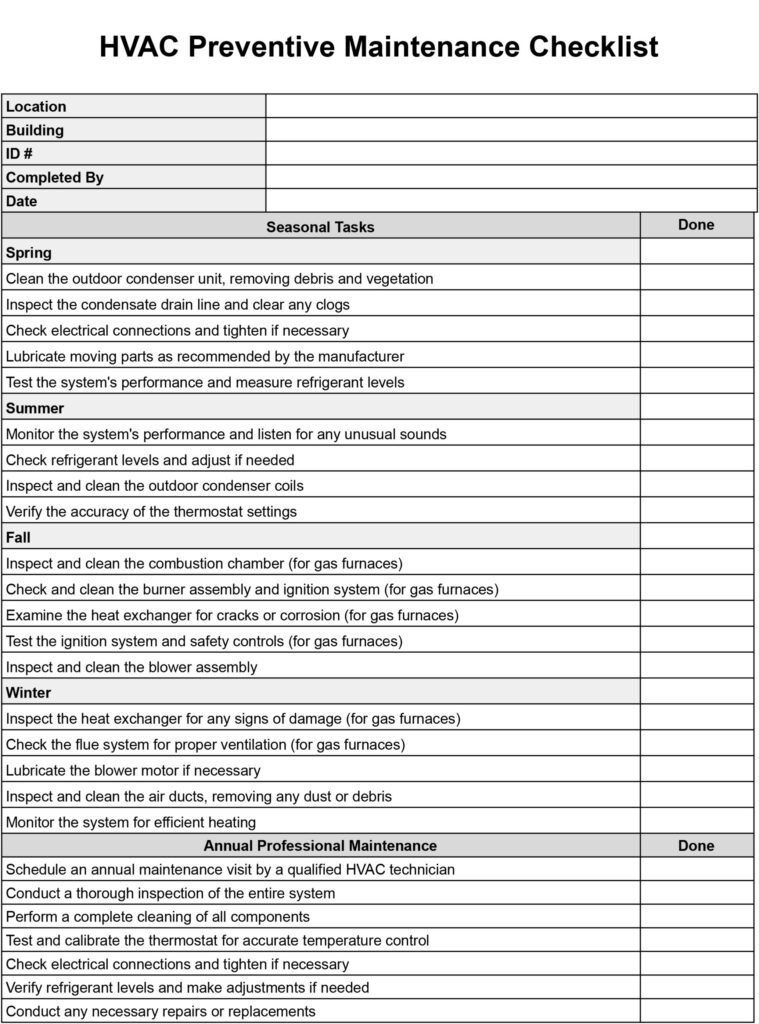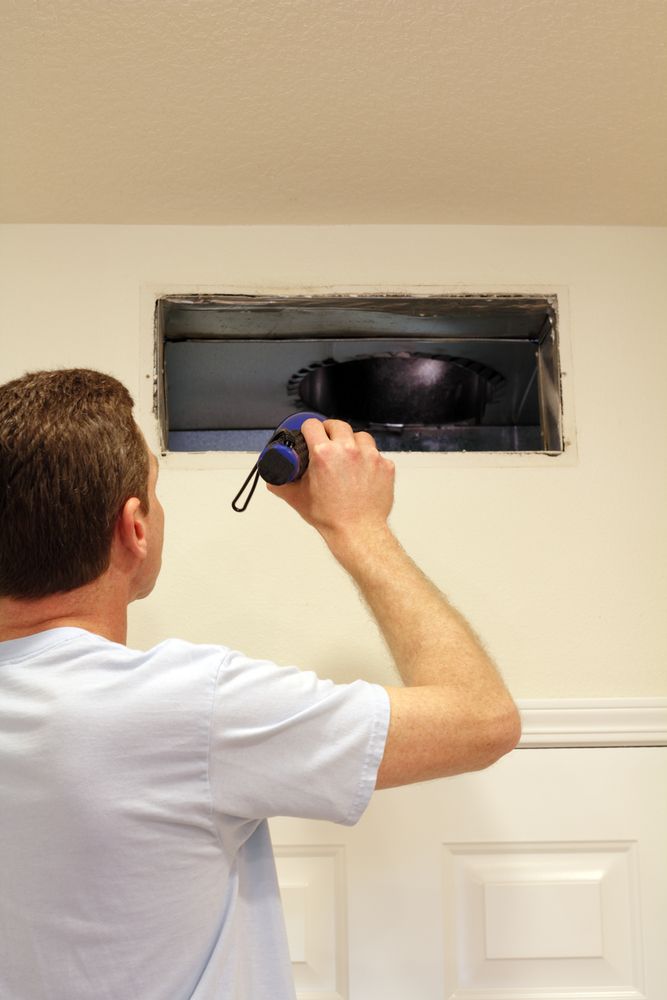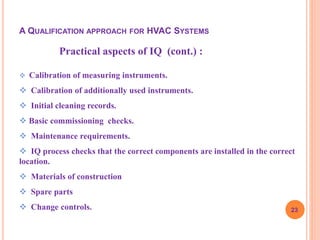Have you ever wondered what HVAC preventive maintenance is all about? If you have, then this article is for you! HVAC preventive maintenance refers to the regular upkeep and care of your heating, ventilation, and air conditioning systems to ensure their optimal performance and longevity. By taking proactive measures and scheduling routine maintenance, you can prevent costly breakdowns, improve energy efficiency, and enjoy a comfortable indoor environment all year round. Let’s explore the importance and benefits of HVAC preventive maintenance and how it can help you save time, money, and stress in the long run. HVAC preventive maintenance is a proactive approach to maintaining and optimizing the performance of your heating, ventilation, and air conditioning system. It involves regular inspections, cleaning, lubrication, and other maintenance tasks to ensure that your HVAC system operates efficiently, extends its lifespan, and provides you with clean and healthy indoor air.
By implementing a preventive maintenance plan for your HVAC system, you can benefit from reduced energy consumption, extended equipment lifespan, improved indoor air quality, and enhanced system performance. Let’s explore these benefits in more detail.
Reduced Energy Consumption
One of the major benefits of HVAC preventive maintenance is reduced energy consumption. When your HVAC system is not maintained properly, it can become dirty, clogged, or inefficient, which can lead to increased energy usage. By regularly cleaning and maintaining your system, you can ensure that it operates at its optimal efficiency, reducing the amount of energy it needs to keep your home comfortable. This not only saves you money on energy bills but also reduces your carbon footprint.
Extended Equipment Lifespan
An HVAC system is a significant investment for any homeowner, and you want it to last as long as possible. Regular preventive maintenance can help extend the lifespan of your HVAC equipment. By keeping all the components clean, lubricated, and in good working condition, you can reduce the wear and tear on the system, preventing premature breakdowns and the need for costly repairs or replacements. With routine maintenance, your HVAC system can last for many years, providing reliable comfort to your home.
Improved Indoor Air Quality
Indoor air quality is a crucial factor in maintaining a healthy and comfortable living environment. HVAC preventive maintenance plays a vital role in ensuring that the air circulated throughout your home is clean and free from pollutants. Regular inspections and cleaning of the air ducts, filters, and components help remove dust, debris, allergens, and other contaminants that can negatively impact the air quality. This is especially important for individuals with allergies, respiratory issues, or sensitivities to airborne particles.
Enhanced System Performance
A well-maintained HVAC system performs at its best, delivering efficient heating and cooling to your home. With preventive maintenance, you can optimize the performance of your system by inspecting and calibrating the various components. This helps identify and address any issues or inefficiencies early on, preventing them from escalating into larger problems. By ensuring that all the parts of your HVAC system are in top shape, you can enjoy reliable and consistent comfort throughout your home.
Now that we have discussed the benefits of HVAC preventive maintenance, let’s delve into the components that make up a comprehensive maintenance plan.
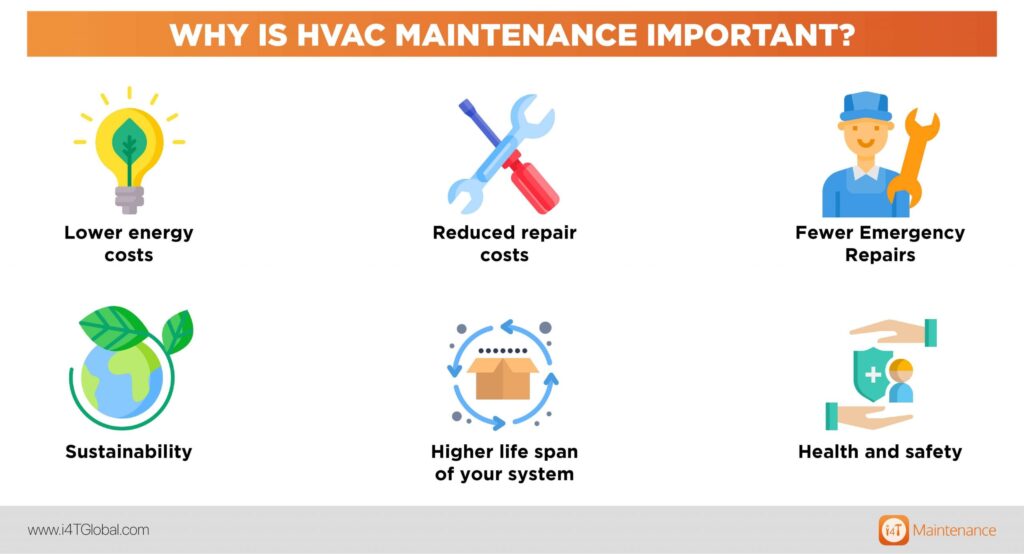

Components of HVAC Preventive Maintenance
A thorough HVAC preventive maintenance plan includes several key components that work together to keep your system operating efficiently and effectively. Let’s explore each of these components in detail:
Inspection
Regular inspections are an essential part of HVAC preventive maintenance. They involve a comprehensive assessment of the system, including checking for any signs of wear, damage, or potential issues. An experienced technician will inspect all the components, electrical connections, ductwork, and controls to ensure they are in proper working condition. Through inspections, potential problems can be identified early on, allowing for timely repairs and avoiding more extensive and expensive damage.
Cleaning
Cleaning is another crucial component of HVAC preventive maintenance. Over time, dust, dirt, and debris can accumulate on various parts of the system, such as the air ducts, coils, filters, and blower components. This buildup can impact the system’s efficiency and air quality. Regular cleaning of these components helps remove the accumulated debris, allowing the system to function optimally and preventing clogs or blockages that can hinder airflow.
Lubrication
Proper lubrication is necessary for the smooth operation of the moving parts in your HVAC system, such as motors, bearings, and fans. Lubricating these components can minimize friction and reduce the risk of wear and tear, extending their lifespan. During preventive maintenance, a technician will check and lubricate the necessary parts, ensuring that they operate efficiently and quietly.
Tightening
Over time, the various components of your HVAC system can loosen due to vibration or regular use. Loose connections, belts, or screws can lead to inefficiency and even system failure. As part of preventive maintenance, the technician will inspect and tighten all the connections, ensuring that everything is secure and functioning as intended. This helps prevent issues arising from loose parts, such as increased energy consumption or potential hazards.
Calibration
HVAC equipment, such as thermostats and controls, need to be calibrated to accurately regulate the temperature and airflow in your home. Incorrect calibration can result in discomfort, as well as energy wastage. During preventive maintenance, the technician will test and calibrate these components, ensuring that they are set correctly and providing accurate readings. This helps maintain a comfortable indoor environment while optimizing energy efficiency.
Filter Replacement
Air filters play a crucial role in trapping airborne particles and ensuring clean air circulation. Over time, filters become clogged, affecting airflow and reducing the system’s efficiency. During preventive maintenance, the technician will inspect the filters and replace them if necessary. Regular filter replacement not only improves indoor air quality but also prevents strain on the HVAC system, allowing it to operate more efficiently.
Now that we have covered the components of HVAC preventive maintenance, it’s important to understand how often these maintenance tasks should be performed.
Frequency of HVAC Preventive Maintenance
The frequency at which you should schedule HVAC preventive maintenance depends on several factors, including the type of system you have, its age, and the manufacturer’s recommendations. However, there are some general guidelines regarding the frequency of maintenance. Let’s explore the different types of maintenance schedules:
Seasonal Maintenance
Seasonal maintenance involves scheduling HVAC maintenance at the start of each heating and cooling season. This ensures that the system is prepared to handle the demands of the upcoming season, whether it’s the heat of summer or the chill of winter. Seasonal maintenance typically includes a comprehensive inspection, cleaning, lubrication, and calibration of the system to ensure optimal performance during the peak seasons.
Monthly Maintenance
Monthly maintenance tasks are relatively light duties that homeowners can perform themselves. These tasks include checking and cleaning the air filters, clearing away any debris from outdoor units, and inspecting the vents and registers for obstructions. Performing these simple tasks on a monthly basis can help maintain the efficiency of your HVAC system and alert you to any potential issues that may require professional attention.
Scheduled Maintenance
In addition to seasonal and monthly maintenance, it is important to have a scheduled maintenance plan in place with a professional HVAC technician. A scheduled maintenance plan allows for regular and comprehensive inspections, cleaning, and maintenance tasks that go beyond what homeowners can do themselves. The frequency of scheduled maintenance visits will depend on the specific needs of your HVAC system and can be determined in consultation with your HVAC service provider.
Now that we know how often to perform HVAC preventive maintenance, it’s important to choose a professional who can handle the job effectively.
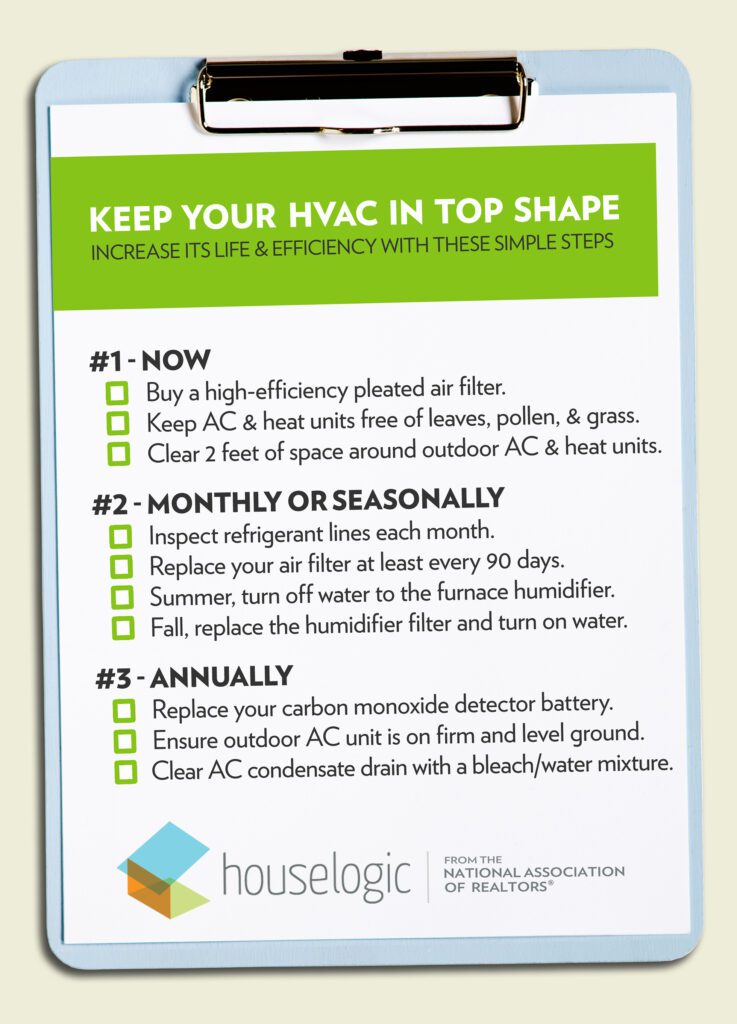

Choosing a Professional for HVAC Preventive Maintenance
When it comes to HVAC preventive maintenance, choosing the right professional for the job is crucial. Here are some factors to consider when selecting an HVAC technician or company:
Certifications and Licensing
Ensure that the HVAC technician or company you choose is properly certified and licensed. This ensures that they have the necessary knowledge and skills to perform maintenance, repairs, and installations correctly and safely. Look for certifications from reputable organizations, such as the North American Technician Excellence (NATE) or the Air Conditioning Contractors of America (ACCA).
Experience and Expertise
Experience is an important factor when selecting an HVAC professional. Look for technicians or companies that have been in the industry for a significant amount of time and have a track record of providing high-quality service. An experienced technician will have the knowledge and expertise to handle a wide range of HVAC systems and diagnose issues accurately.
References and Reviews
Check the references and reviews of the HVAC technician or company you are considering. Ask for recommendations from friends, family, or neighbors who have used their services in the past. Online review platforms can also provide valuable insights into the quality of service provided by the technician or company.
Customer Service
Good customer service is essential when dealing with HVAC professionals. Look for technicians or companies that are responsive, prompt, and respectful in their communication. A reliable HVAC professional will prioritize customer satisfaction and ensure that your needs are met throughout the maintenance process.
Service Agreements
Consider HVAC professionals who offer service agreements or maintenance contracts. These agreements outline the services included, the frequency of maintenance visits, and any additional benefits or perks. Service agreements can provide peace of mind that your HVAC system will receive regular and timely maintenance, reducing the risk of breakdowns and ensuring optimal performance.
Now that we have discussed how to choose a professional for HVAC preventive maintenance, let’s address the cost associated with these services.
Cost of HVAC Preventive Maintenance
The cost of HVAC preventive maintenance can vary depending on various factors, including the size of your system, the complexity of the maintenance tasks, and the location of your home. However, investing in regular preventive maintenance is generally less expensive than dealing with costly repairs or premature replacements. It’s important to view HVAC maintenance as a long-term investment that helps you avoid major expenses in the future.
To get an accurate estimate of the cost, it is advisable to contact HVAC professionals in your area and request quotes for preventive maintenance services. Compare the quotes and consider the reputation, experience, and level of service provided by each professional or company. Remember, the cost of maintenance should be viewed in relation to the benefits it provides in terms of energy savings, extended equipment lifespan, and improved indoor air quality.
Now that we have explored the components, frequency, and cost of HVAC preventive maintenance, let’s discuss some common tasks that are typically included in a comprehensive maintenance plan.
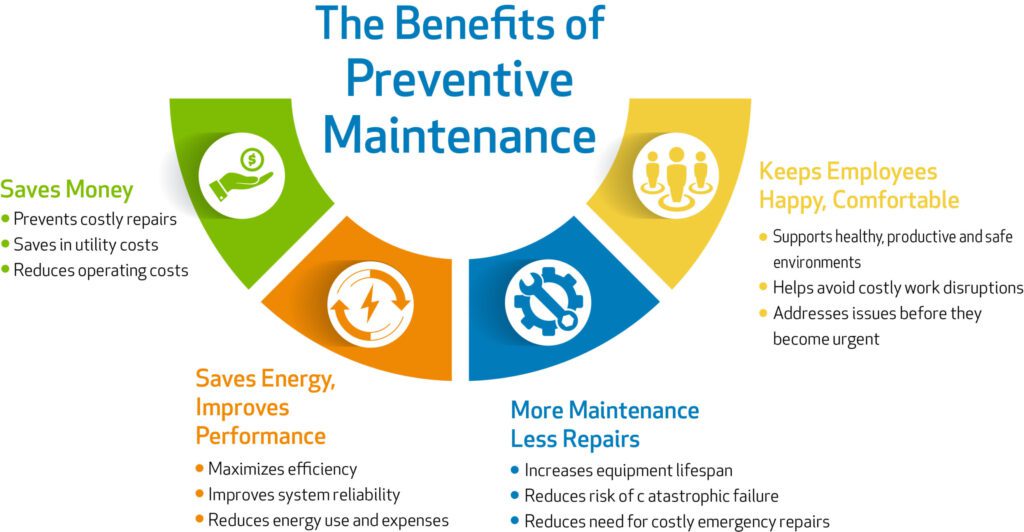

Common HVAC Preventive Maintenance Tasks
A comprehensive HVAC preventive maintenance plan usually includes a range of tasks designed to keep your system in optimal condition. Here are some of the most common tasks performed by HVAC professionals:
Inspecting and Cleaning Air Ducts
Air ducts are responsible for distributing conditioned air throughout your home. Over time, they can accumulate dirt, dust, and debris, which can hinder airflow and reduce the efficiency of your system. Inspecting and cleaning air ducts involves removing any buildup, ensuring that the air flows freely and that the quality remains high.
Testing Thermostat Functionality
The thermostat is the control center of your HVAC system. It regulates the temperature and controls when the system turns on and off. Testing thermostat functionality ensures that it is communicating correctly with the HVAC equipment and accurately measuring the temperature. This ensures that your system operates efficiently and that your home remains comfortable.
Cleaning and Replacing Air Filters
Air filters are responsible for trapping dust, allergens, and other particles, preventing them from circulating through your home. Over time, filters become clogged and lose their efficiency. Cleaning and replacing air filters is an essential maintenance task that ensures proper airflow, improves indoor air quality, and helps maintain the efficiency of your HVAC system.
Inspecting and Cleaning Condenser Coils
The condenser coils in your outdoor unit play a crucial role in the heat exchange process. Over time, these coils can become dirty and reduce the efficiency of your system. Inspecting and cleaning condenser coils involves removing any dirt or debris from the coils, allowing for optimal heat transfer and preventing strain on the system.
Checking Refrigerant Levels
Refrigerant is the substance responsible for absorbing and releasing heat in your HVAC system. Proper refrigerant levels are crucial for the efficient operation of your system. Checking refrigerant levels involves ensuring that they are within the manufacturer’s recommended range. If the levels are low, it may indicate a refrigerant leak that needs to be addressed by a professional.
Inspecting and Lubricating Moving Parts
The moving parts of your HVAC system, such as motors, bearings, and fans, require regular lubrication to operate smoothly. Inspecting and lubricating these parts involves checking for any signs of wear or insufficient lubrication and applying the necessary lubricant to ensure optimal performance and extend the lifespan of these components.
Testing Electrical Connections
Secure electrical connections are essential for the safe and efficient operation of your HVAC system. Over time, connections can become loose or corroded, posing a risk of fire or system failure. Testing electrical connections ensures that they are properly secured, preventing any potential hazards and allowing for reliable performance.
Examining and Adjusting Belts
Belts in your HVAC system are responsible for transferring power between various components. Over time, belts can become worn or misaligned, leading to reduced efficiency and potential system failure. Examining and adjusting belts involves checking for any signs of wear, tensioning or aligning them correctly, and replacing them if necessary, ensuring optimal performance and preventing costly breakdowns.
Cleaning and Clearing Drainage System
The drainage system of your HVAC system removes condensation and excess moisture. Over time, debris or algae can accumulate, causing clogs or blockages. Cleaning and clearing the drainage system involves removing any buildup, ensuring that the system drains properly and preventing water damage or mold growth.
Inspecting and Cleaning Blower Components
The blower components in your HVAC system are responsible for circulating the conditioned air throughout your home. Over time, dirt or debris can accumulate on the blower blades or motor, affecting airflow and efficiency. Inspecting and cleaning blower components involves checking for any buildup, cleaning the blades and motor, and ensuring that they are in good working condition.
Inspecting and Adjusting Combustion Components
If your HVAC system includes a furnace or another combustion-based heating system, inspecting and adjusting the combustion components is crucial. This ensures that the fuel is burning efficiently and that there are no safety hazards associated with the combustion process. A professional technician will check the burner, pilot, and other components to ensure proper operation and optimize efficiency.
By performing these common HVAC preventive maintenance tasks, you can help keep your system in excellent condition, improve its efficiency, and prevent unexpected breakdowns or repairs.
While it’s important to have professional HVAC preventive maintenance, there are also some DIY tips you can follow to assist in maintaining your system in between professional visits.
DIY HVAC Preventive Maintenance Tips
In addition to professional maintenance, there are several tasks that you can perform yourself to assist in the upkeep of your HVAC system. Here are some DIY tips for HVAC preventive maintenance:
Regularly Change Air Filters
Changing air filters is one of the simplest and most effective DIY maintenance tasks. Regularly inspect the air filters and replace them according to the manufacturer’s recommendations or when they become visibly dirty. This helps maintain proper airflow, improves indoor air quality, and reduces strain on the HVAC system.
Keep Outdoor Units Clean and Free from Debris
Regularly check the outdoor units of your HVAC system and ensure that they are clean and free from any debris, such as leaves, grass clippings, or dirt. Trim any vegetation that may obstruct airflow and keep the area surrounding the unit clear. This allows for proper ventilation and prevents the system from working harder than necessary.
Check and Clean Registers and Vents
Inspect the registers and vents throughout your home and make sure they are not blocked or obstructed. Vacuum or dust off any buildup that may hinder airflow. Keeping the registers and vents clean allows for proper air distribution and ensures consistent comfort in every room.
Inspect and Clear Drain Lines
If your HVAC system has a condensate drain line, inspect it regularly for any signs of clogs or blockages. A clogged drain line can lead to water damage or mold growth. Use a wet/dry vacuum or a stiff brush to clear any debris or buildup from the drain lines, ensuring that the water flows freely.
Test and Calibrate Thermostat
Make sure your thermostat is functioning properly by testing it periodically. Adjust the temperature and observe if the system responds accordingly. If you notice any issues or inconsistencies, consult the manufacturer’s instructions or contact a professional technician for calibration.
Keep Area around HVAC System Clear
Ensure that the area around your HVAC system is clear and free from any obstructions. Move furniture, storage items, or any other objects that may hinder the proper operation or maintenance of the system. Maintaining a clear area allows for easy access during professional maintenance and ensures proper airflow.
Monitor Energy Consumption
Take note of your energy consumption and be aware of any significant increases. A sudden spike in energy usage could indicate a problem with your HVAC system. Monitoring your energy consumption allows you to identify potential issues early on and take appropriate action.
Schedule Professional Inspections
While there are several tasks you can perform yourself, it’s important to schedule regular professional inspections. HVAC technicians have the expertise and tools to identify and address potential issues that may go unnoticed by homeowners. Professional inspections, in conjunction with your DIY maintenance efforts, ensure that your HVAC system remains in optimal condition.
In conclusion, HVAC preventive maintenance is a crucial aspect of maintaining the efficiency, comfort, and longevity of your heating, ventilation, and air conditioning system. By implementing a comprehensive maintenance plan that includes regular inspections, cleaning, lubrication, and other tasks, you can benefit from reduced energy consumption, extended equipment lifespan, improved indoor air quality, and enhanced system performance. Whether you choose to perform some tasks yourself or rely on professional technicians, regular maintenance is essential to ensure that your HVAC system operates efficiently and provides comfort year-round.
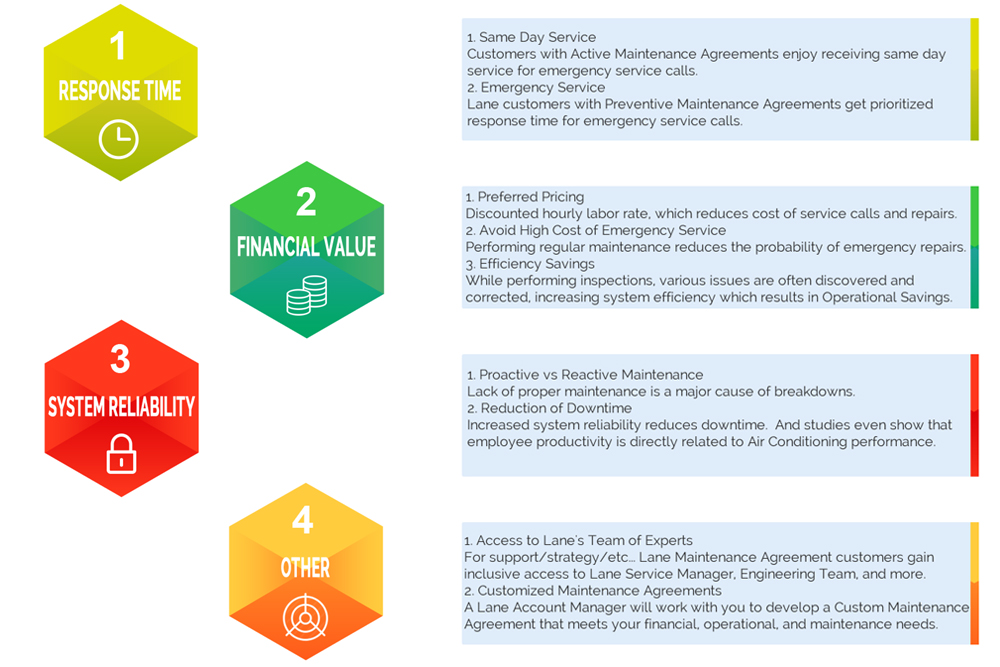

Sources
No specific sources were cited for this article.

